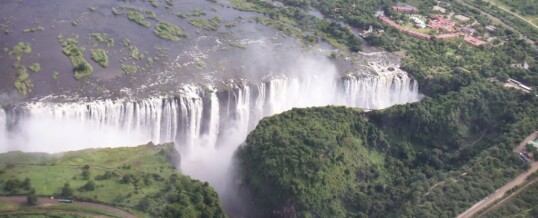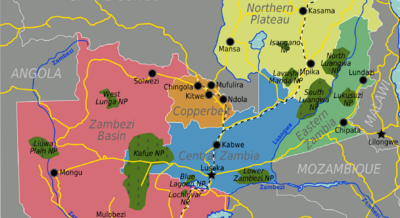
I liked a piece by Beth Kormanik on Hotel Interactive I’ve edited quite a lot of it and added my comments specifically for Zambia at the end.
“As the continent of Africa realizes new heights with global tourism – bolstered by the FIFA World Cup in South Africa last year – new facts and figures are telling the story of a continued growth in 2011. Key issues such as difficulty in crossing borders and concerns over security, though, are stalling that growth.
Tourist arrivals to Africa in 2010 reached 940 million, an increase of 6.6 percent compared with 2009. North Africa is the biggest draw, thanks to Egypt, with 29.7 million arrivals that accounted for $21.7 million in receipts. The figures were among those in just-published State of Tourism in Africa, a report sponsored by the World Bank, the Africa Travel Association and New York University’s Africa House.
“It seems there is room for us to be optimistic,” said Fatou Mas-Jobe Njie, Minister of Tourism and Culture for the Republic of The Gambia and president of the Africa Travel Association, which held its sixth annual Presidential Forum on Tourism Tuesday in New York. While travel and tourism hold the promise of growing GDP, creating jobs and encouraging sustainable development, the current reality is of low consumer confidence and investment.
“Still, we need to caution our optimism as uncertainty still remains,” she said. “We cannot ignore what happened to the tourism industries of Egypt and Tunisia after the shocks of political change.The reality is that the possibility of growth and development are not yet fully recognized or realized in Africa’s political corridors. That’s why ATA has a critical role to play. ATA can help raise awareness of the importance of the industry among decision makers and across the general public in Africa.”
First, though, African countries need to resolve long-standing issues that hamper travel, such as the difficulty crossing borders, according to Nigel Vere Nicoll, managing director of Advancing Tourism to Africa. “Why is it that the border between Kenya and Tanzania is impossible to cross?” he asked. “The two parties just don’t talk to each other. It doesn’t make sense.”
Ezekiel Maige, Tanzania’s Minister of Natural Resources and Tourism, said the two countries have issues over border security and also of a fair distribution of tourist dollars. “We are discussing in the region how we can sort out these problems,” he said. “The assurance I’ll give here is we’ve reached a very good stage.”
David Scowsill, president and CEO of The World Travel and Tourism Council, pointed out that air service agreements in Africa are terribly outdated – many in East Africa still operate under rules developed at the Chicago Convention in 1944. Travel across borders within Africa remains difficult. “I suspect our predecessors were having similar conversations 10, 15, 20 years ago,” Scowsill said. “We’re not working fast enough.” Being a tourism minister is a lonely place to be.The focus on travel and tourism and what it does for job creation and wealth creation overall is an agenda that is only going to be driven by the president of a country. If we could find two, three or four visionary African presidents who really understand the power of travel and tourism and are prepared collectively to move things and change things, to open the skies and to have common visas things would happen, without that, I can’t see anything changing very quickly.”
Another challenge is marketing Africa as a safe and desirable location, according to Gregg Truman, vice president of sales and marketing for South African Airways.
“If Africa wants to be recognized it must be willing to spend resources in marketing the destination,” he said. “That’s what we don’t do well most of the time. Yet we have beautiful scenery, a lot of cultural tourism, eco-tourism. We have diverse products that people can learn from and enjoy”
In Zambia’s case:
I should think our new Minister of Information, Broadcasting and Tourism, Given Lubinda and President Michael Sata are very busy with other things, but the sentence I’ve highlighted above about tourism needing to be presidentially driven bears thinking about!
The ATA has been around for a long time, I’m not sure how much they’ve really done for tourism in this country.
Recommendations for Zambia: 1. Re-introduce the successful visa waiver scheme for bona fide tourists with advance reservations.
2. Allocate a good budget to Zambia Tourist Board for overseas marketing in Europe and USA.
3. Improve tax incentives and concessions for the hospitality and travel industries in order to stabilize prices and to change the perception of Zambia being an expensive destination.
4. Improve air (and road) links between the different tourist destinations within Zambia and surrounding countries and encourage competition to reduce air fares.
5. Make the Victoria Falls accessible to tourists from both sides of the border without visas and immigration formalities. (Dreams division)
The photo? Victoria Falls – the Zimbabwe side for a change!
1
OCT







